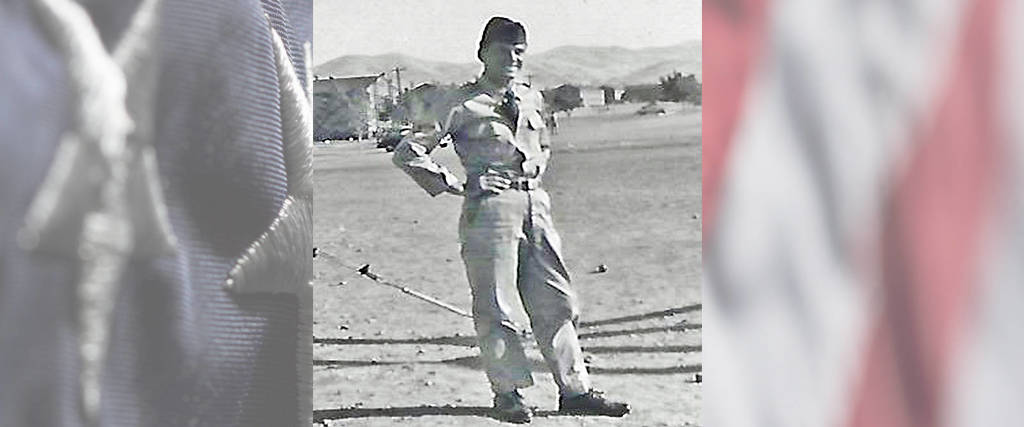U.S. Air Force Korean War Oak Brook, IL Flight date: May, 2019
By Nancy Angel, Honor Flight Chicago Veteran Interviews Volunteer
John Debnar grew up in Chicago and chose to attend Tilden Technical High School so that he could play football. Around that time, John’s parents learned of a relative who had died playing football and so they wouldn’t allow him to play. John ended up on the football field with the band instead. In the long run, that worked out better, as John’s experience as a trumpet player afforded him later opportunities that he might not otherwise have had.
After high school, John worked as an electric welder for the Rheem Manufacturing company. A couple of evenings a week, he played in a band at a nightclub on Halsted Street, across from the Stockyards Inn. The band included an accordion player, bass and drums as well as John on trumpet. When John was 20 years old, he decided to enlist in the Air Force. There was a draft at the time, and he knew he didn’t want to go into the Army, so he signed up for a four-year stint.
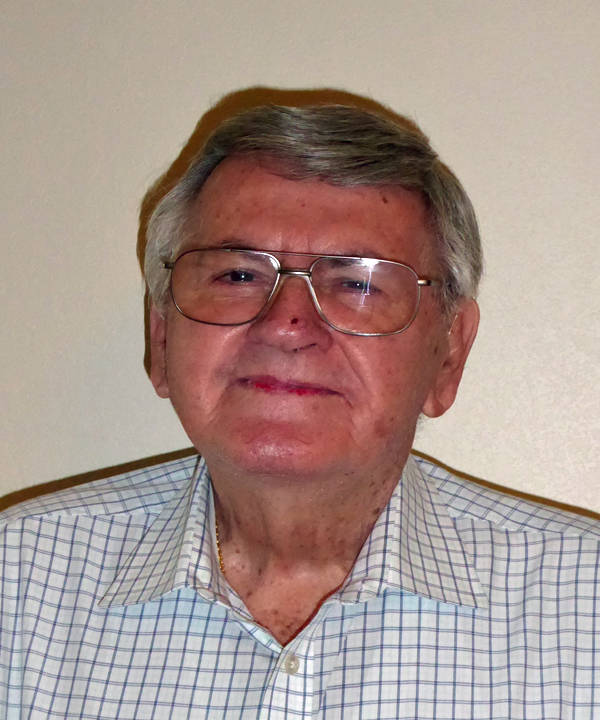
John was inducted into the Air Force in January of 1951 and immediately went to San Antonio for Basic Training. There was not enough room for all of the men at the base, so tents were set up and many of the men, including John, had to sleep in them. John remembers it being very cold and sleeping with his jacket on to keep warm. Because of the conditions, many of the men were getting ill with pneumonia, and some unfortunately died. A congressional investigation was conducted and, as a result, the Air Force started sending the men to other bases to complete their training.
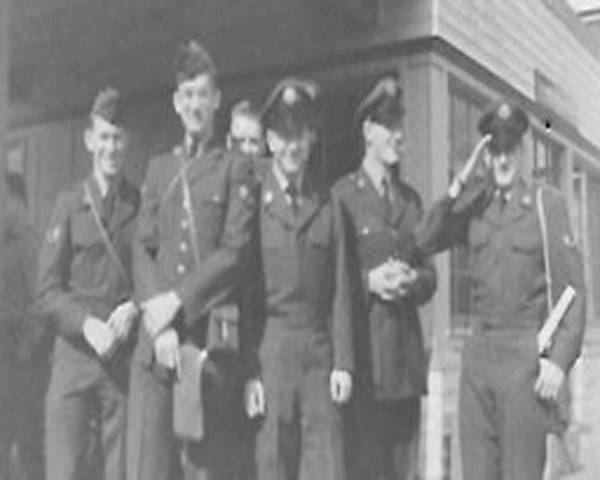
Following Basic Training, John was sent to Radar School in Biloxi, Mississippi for 3 months of specialty training. Upon completion he was sent to his first assignment in Newburgh, New York. John heard that if he remained as a radar specialist, he would “end up on a mountain in no man’s land,” so he leveraged his typing skills and got a job in the office. In addition to knowing how to type, he knew all of the radar jargon. Initially he worked in the adjutant’s office, receiving communications and ensuring that they were distributed to the appropriate departments but later he also worked in the personnel office. John recalls a highly respected officer and West Point graduate at the base who had a reputation for getting whatever he wanted. John attributes that officer’s influence for his promotion to Airman First Class. Although it is possible, he might have been recommended because of the new filing system he developed in the personnel department. The new system entailed filing by personnel last name versus subject, which resulted in increased accuracy and efficiency.
John was then transferred to Syracuse, New York, and knew that he had a brother in town somewhere but didn’t know his address or how to find him. Shortly after arriving, John remembers walking out of mass one Sunday morning and just then, he looked up and there, walking on the other side of the street, was his brother! The two celebrated their reunion. While in Syracuse, John joined the band and periodically played to entertain the troops on their base. Thanks to John’s participation in the band as a trumpet player, he became an applicant to play at the Air Force Rest and Recreation Center at Mount McKinley National Park in Alaska. He was sent to California to interview for the position and then immediately reported to Alaska.
The Rest and Recreation Center provided a variety of winter recreational activities and entertainment for those in the armed forces and their families assigned to Alaska. There were about 48 staff assigned to the R & R Center. Besides musical entertainers like John, there were also instructors for various recreational activities like skating or skiing in addition to general maintenance and service personnel. Because the band only performed a few times a week, John had other work assignments. When he first arrived, he was a waiter which he enjoyed because he had the opportunity to meet and interact with a lot of people. Later he was assigned to work in the office, checking in the guests and assigning rooms. In a less official capacity, John cut hair as well. His father was a barber and had taught him the business and barber skills when he was growing up. He had a little side business cutting hair for colleagues and hotel guests; he recalls that one time he had occasion to cut the hair of a 3-star general and his staff.
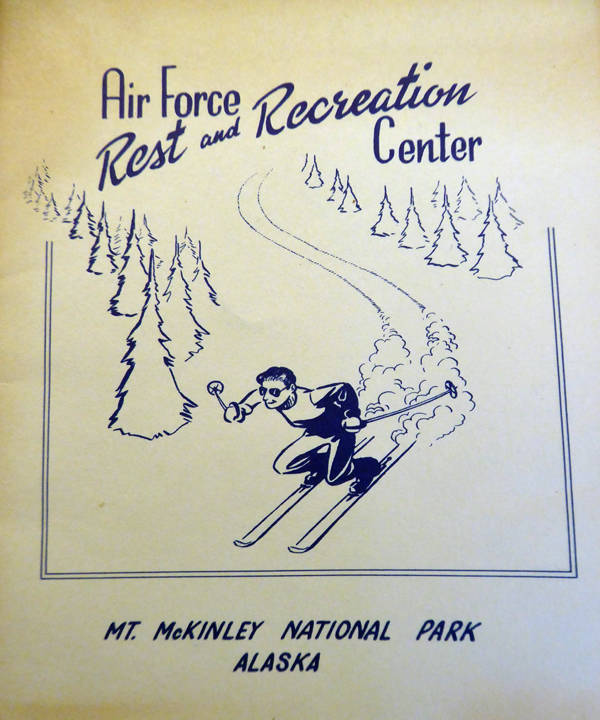
The band had about seven musicians with a couple of singers. John remembers that they all ad libbed a lot when they were playing. Shortly after being assigned to the hotel there were no guests to attend to because of a flu epidemic. A local dance hall engaged the band to play. John had just had his trumpet sent to him and hadn’t played in a couple of months and his lip was out of shape so he was only able to play the trumpet for a few minutes. He asked his fellow band members to play a blues melody, and he started singing, even though he never had done so before. He was singing the blues, and ad libbing but as he sang, he noticed that the dancers on the floor had stopped dancing and were listening to him sing. Later he wrote down the words to the song as best as he could remember which was a good thing, because he was called on to sing it again. On another occasion, a General visiting the center heard the band perform and liked it so much that he had them take their show on the road to all the bases in Alaska.
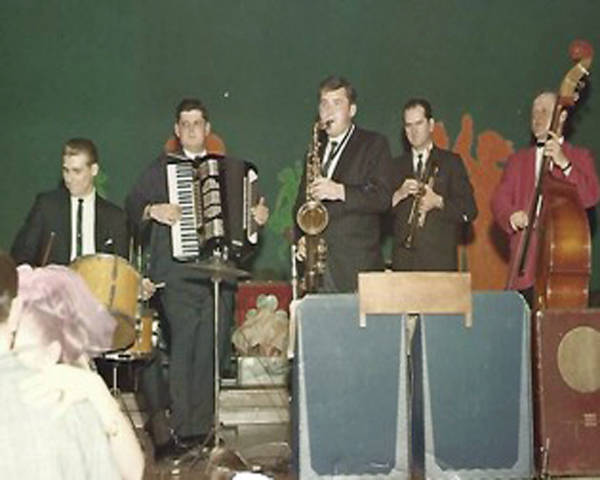
John and the rest of the band spent a couple of months traveling around Alaska, including some of the Aleutian Islands. Most of their travel from place to place was on a C-47. They didn’t mind because these planes didn’t require a long runway for take-off or landing. They did fly over Mount McKinley a couple of times and John recalls some harrowing experiences during some of those flights. One time one of the engines lost power during flight, but the other engine continued to function and they made it to their destination safely. Prior to another flight, John witnessed the pilot arguing with the head mechanic, who didn’t want to sign off on the safety of one of the engines. The pilot must have won, because the flight took off, but John kept checking out the window to make sure the engine was still working.
One of the places he went in his travels around Alaska was St. Lawrence Island. From there he could see Siberia and he remembers thinking that he would never want to go there. Ironically, some 50 years later he did just that. He and his wife accompanied their daughter to an orphanage in Siberia to pick up a baby she was adopting.
After completing the band’s tour of the Alaskan bases, John spent the remainder of his two-year assignment at Ladd Air Force Base in Fairbanks. When his assignment in Alaska was complete, there was less than six months remaining on his four-year commitment so he was discharged. He returned to Chicago and attended the University of Illinois on Navy Pier.
About a year later, he was at the Polka Club in Chicago, a Polish night club that a friend had recommended as a good place to meet women. As he stood talking to a friend, he saw a woman walk through the door and he said to his friend, “That’s the one.” Sure enough, he danced with her that night and ultimately married her. John and Mary Ann were married for 62 years before she passed away a year and a half ago. According to John, “She was really something.” They have five children, twelve grandchildren and three great-grandchildren.
John initially opened a barbershop in Brookfield in 1955 and then in 1963 moved to a different location in Brookfield where he continues to cut hair two days a week. He loves the barber business, because he is able to be somewhat of an artist and he enjoys being with people. He says he is going to retire in a month or two so that he will have more time to golf and visit his children and grandchildren who are scattered around the country.



